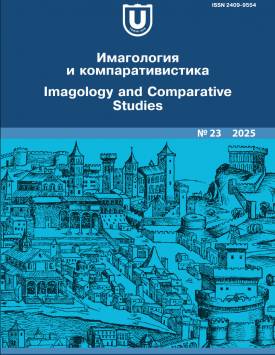Life as an adventure: Perception of other cultures in the autobiographical prose by Vera Andreeva
The article discusses the problems of cultural adaptation reflected in the autobiographical prose by Vera Andreeva, the daughter of the writer Leonid Andreev. The material for the study was her books The House on the Black River (1974) and Echo of the Past (1986). In connection with the emigration of the family, the writer visited Finland, Germany, Italy, Czechoslovakia, and France. The House on the Black River describes Andreeva’s childhood memories, including indirect contacts with other cultures through reading, education, foreign language learning, as well as a direct encounter with Finnish culture, which began to identify itself after Finland declared its independence in 1917. In the book Echo of the Past, the Andreev family first emigrates to Germany in 1920, which leaves mostly negative impressions on the writer. Then they move to Italy, about which the author has mostly positive memories, despite the need to learn a new language. In connection with the announcement of a program to help Russian refugees in Czechoslovakia, the Andreevs settle in the suburbs of Prague, and Vera and her brothers study at a Russian gymnasium. At first the author’s skeptical attitude towards the unfamiliar Czech culture and Czech language gives way to adaptation to the environment, although the writer practically never goes beyond the emigrant circle. Therefore, the family’s subsequent move to France is perceived negatively, and Andreeva returns to Prague and finishes her studies at the gymnasium. The book ends with a description of the difficult life in Paris, the search for work and an unexpected encounter with yet another culture when she tries to enroll in a nursing school at the American Hospital. Characterizing Andreeva’s “adventures” from the point of view of intercultural communication, one can note various manifestations of cultural shock - from the “honeymoon” and “crisis” to “adjustment” and adaptation. The severity of this process was influenced by such factors as Vera’s young age, her gender, cheerful nature, good education, motivation for emigration, a small “cultural distance” between Russia and European countries, experience of interaction with foreign cultures, and conditions of stay in other countries. As a result, Andreeva, overcoming ethnocentrism, stereotypes, and prejudices, becomes an “experienced traveler”, interculturally competent to a certain extent, a multicultural person who knows several languages and, as far as possible, has adapted to the challenges of emigration. Thus, an approach from the point of view of intercultural communication made it possible to consider Vera Andreeva’s autobiographical prose as an important and interesting source not only for the history of twentieth-century culture (of the Russian diaspora and several European countries), but also for cultural adaptation and overcoming cultural shock. In the author’s opinion, such an interdisciplinary perspective made it possible to better understand the social and psycho-emotional context within which these works were created. The author declares no conflicts of interests.
Keywords
Russian emigration, autobiographical prose, Vera Andreeva, intercultural communication, cultural adaptationAuthors
| Name | Organization | |
| Krasilnikov Roman L. | krasilnikov.rl@gmail.com |
References

Life as an adventure: Perception of other cultures in the autobiographical prose by Vera Andreeva | Imagologiya i komparativistika – Imagology and Comparative Studies. 2025. № 23. DOI: 10.17223/24099554/23/15
